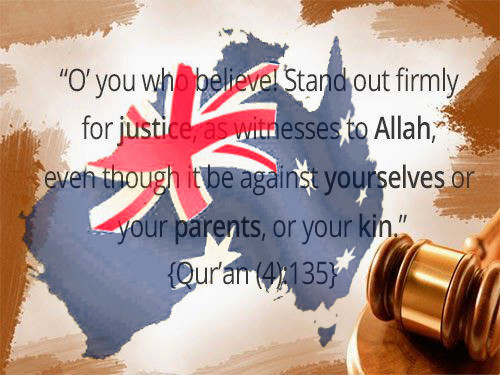

By: Ahmed Kilani
Source: THE AUSTRALIAN
According to the last census data, only about 2 per cent of Australian Muslims had both parents born in Australia. This is as good an indicator one can get of how the community is still in the development stage of establishing a new and unique identity of Australian Muslims.
This identity is one that is ethnically extremely diverse, but socially and culturally a hybrid of a Western mindset coupled with Islamic values creating a new unique identity. That means Australian-born Muslims have more in common with British or American-born Muslims than Muslims from most Muslim majority countries.
The issue of dysfunctional leadership in the Australian Muslim community is not a phenomenon that occurred overnight. It’s also not due to a lack of qualified, articulate and passionate Australian Muslim leaders and imams.
It’s due to the need to give those who are capable the opportunity to step up, lead and empower the Muslim community to the benefit of all society. Although this process has started and we witnessed two excellent initiatives during the past week in the Sydney Muslim Conference organised by the Lebanese Muslim Association and the Australian Conference of Islam: Radicalisation & Islamophobia by the Islamic Sciences & Research Academy that exemplified the change in mindset, professionalism and leadership that is starting to take place. There are still many fundamental problems in leadership structures that are disenfranchising the vast majority of Australia’s 500,000 Muslim population that was born or raised here.
Some of the initiatives I and many other Australian born and raised Muslims would like to see our leadership adopt are a reflection of why we have a crisis of leadership.
First, I believe we need to create a charter of values and unity that should be signed and adhered to by all imams, organisations, community leaders and those in positions of influence and authority in the Muslim community. The goal of this should be to unify theologically the Australian Muslim community internally, and externally reach out to the greater community to reinforce the common values we all share.
The charter could proclaim that those who commit acts of terror, murder and cruelty in the name of Islam are not only destroying innocent lives but are also betraying the values of the faith they claim to represent. That no injustice done to Muslims can ever justify the massacre of innocent people, and no act of terror will ever serve the cause of Islam.
It would repudiate and dissociate Muslims from any Muslim group or individual who commits such brutal and un-Islamic acts, and refuse to allow our faith to be held hostage by the criminal actions of a tiny minority acting outside the teachings of Islam.
There also should be a proclamation that the way of Islam calls on all Muslims to affiliate with and participate in modern society, and to contribute to its elevation and progress, to achieve good and desiring peace and justice for all peoples regardless of race or religion.
Policies should be implemented to allow for greater transparency and accountability in the management of all community organisations, be it small mosques that rely on community donations or multi-million-dollar enterprises such as government-funded Islamic schools.
There should be further emphasis on creating a unique Australian Muslim identity by favouring and empowering qualified Australian-born and raised imams and community leaders who have traditional Islamic education and are able to understand the day-to-day issues facing Muslims living in the West. This understanding is not only about language skills. It is a deeper understanding that can come only from being born and raised in Australia.
Muslim organisations also need to develop a transition plan to drop their ethnic identifiers and adopt Australian or locality-based identifiers. Australian Muslims live in Australia and that is what the overwhelming majority of us identify with.
I believe all organisations should implement quotas for female representation on their boards. There should also be a goal to have 50 per cent of boards comprising suitable, qualified Australian-born or raised Muslims under the age of 45. We should establish internships to attract the talented Muslim youth of the community. These measures will allow for a generational transition to take place and take away the emphasis of personality-driven leadership to one that is process driven.
One of the most important initiatives the community needs to adopt is to change the model of unpaid volunteer work and restructure resources and organisations to pay professionally the best and brightest to represent and lead the Australian Muslim community.
I would encompass all these measures with a strong focus on encouraging greater Muslim community engagement on an individual and organisational level with the greater community in all areas of Australian life.
Many of these initiatives to create generational and intellectual change are taking place. There is much to be celebrated and be proud of, but there is also still much work to do.
Ahmed Kilani is founder of the website Muslim Village.



